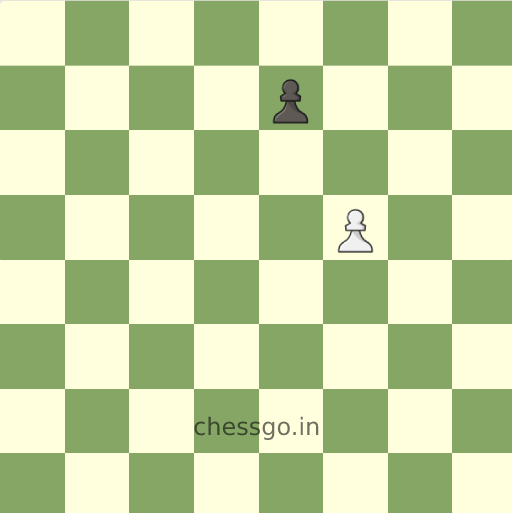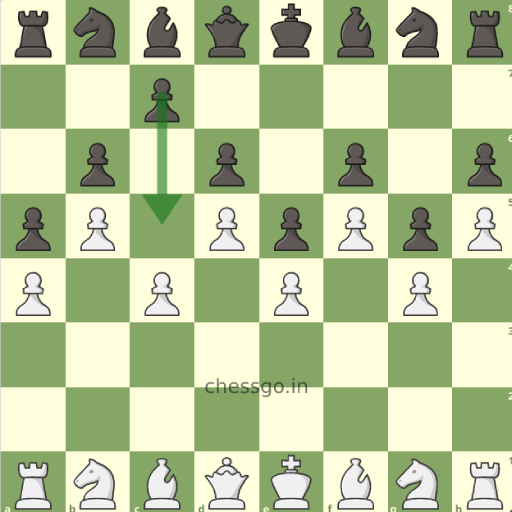How to Teach En-passant?
 Consider this position where it is Black to play.
Consider this position where it is Black to play.
As pointed out by the arrow, black can completely block the position and create something known as a pawn-lockup where whoever tries to reach the other side looses.
The game mostly ends up in a draw by repetition or agreement. This was a problem. It used to happen in high level tournaments and chess fraternity wanted a solution.
En-passant was introduced around 464 years ago to solve this pawn-lockup problem.
The “In Passing”:
The Double Jump: En passant allows you to capture an enemy pawn that just moved two squares from its starting position, landing right next to your pawn. It’s like saying, “Hey, you skipped a step, sneaky pawn! Now I get you!”
One Square Capture: But here’s the twist: you can only capture this pawn as if it had moved only one square. Imagine your pawn magically slides in and captures the “overconfident” one.
Next Move Only: This special capture is only allowed immediately after your opponent’s pawn makes the double jump. If you miss your chance, the opportunity vanishes like smoke!

Think Like a Ninja:
Visualize: Imagine an invisible square beside your pawn. If your opponent’s pawn lands on that square after its double jump, en passant is on!
Timing is Key: Remember, you only have one move to use en passant. Don’t get distracted and miss your chance!
Strategize: Ask yourself, “Will capturing this pawn help me achieve my goal?” Sometimes, letting it go might be part of a bigger plan.
Fun Facts for Young Grandmasters:
- En passant is one of the most confusing rules in chess, even for adults!
- It’s a rare move, but knowing it can give you a surprise advantage against unsuspecting opponents.
- En passant comes from French and means “in passing,” reflecting the act of capturing the pawn as it “passes” your square.
Remember:
- En passant is not always the best move. Think carefully about the consequences before capturing.
- Practice makes perfect! Play games and practice identifying en passant opportunities.
- Most importantly, have fun! Learning chess is a journey, and mastering en passant adds a layer of excitement and challenge.
Now, coming back to the pawn-lockup we were discussing initially - after en-passant rule - it is not a problem at all.
